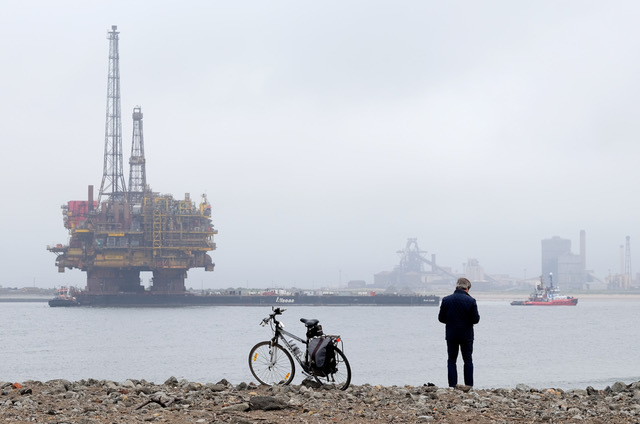
Oil companies are expected to hand in more than 100 UK North Sea decommissioning plans over the next two years.
Nils Cohrs, head of decommissioning at the Oil and Gas Authority (OGA), said 45 were anticipated this year, followed by another 60 in 2019.
Mr Cohrs, who was appointed in October, said approval should follow within 30 days of plans being submitted, under normal circumstances.
Eight were cleared in 2017, the last of which related to Fairfield Energy’s Greater Dunlin Area.
Not all programmes involve the removal of large, manned platforms. Some will be modest, covering unmanned installations, pipelines and other pieces of subsea infrastructure.
He was citing projections from the UK Department for Business, Energy and Industrial Strategy, which is responsible for approving decommissioning programmes.
The floodgates are yet to open in 2018 − hardly any new plans were filed in the first two months of the year.
At the start of January, Repsol Sinopec Resources UK lodged draft proposals for decommissioning an export pipeline for the Rev field.
Apart from that, there has been little or no action.
There is still plenty of 2018 left, of course.
Mr Cohrs said the quiet start to the year could be due to companies taking a second look at costs, weighing up what processes they can improve.
Crude prices could also be a factor. If they are too low, companies can’t afford to decommission infrastructure. If they are too high, operators would rather keep mature assets producing.
But Mr Cohrs, a former offshore installation manager on Shell’s Brent Alpha platform, said the higher oil prices seen at the start of 2018 “should not stop companies planning”.
He said operators should start thinking about how they will decommission their fields a good “six years” ahead of production being stopped.
Oil companies sharing their experiences and learning lessons could help lower decommissioning costs for the UK continental shelf.
The OGA estimated in June that the bill would total £60billion, but said it would strive to chop that figure down to £39billion or less.
Mr Cohrs, who also had a spell as operations manager at Centrica Storage’s Rough facility, said many operators are “already sharing”, united by a common goal of lowering decommissioning costs.
The OGA aims to influence the sector and promote good behaviour – and has come up with a few ways of doing just that.
The regulator will use its latest stewardship survey to amass data which can be used to provide insights through benchmarking, or comparison.
The less competitive will be able to talk to the better performers and find out what they’re missing, the premise being that it is in every operator’s interests to help lower decommissioning costs.
Mr Cohrs said it was “fascinating” to see that supply chain companies and operators alike are “really geared up” to make a success of UKCS decommissioning.
Suppliers do stand to benefit from the award of contracts, but they still need to offer a better package than their rivals.
For many suppliers, decommissioning-related services form just part of their offering.
But specialist decommission companies are starting to emerge – an encouraging development, according to Mr Cohrs.
He said: “Decommissioning specialists are very brave because it’s all quite new. They’re very brave, but it’s very encouraging.
“We’re seeing companies develop processes to support the whole industry.”
He said cost savings could be “massive” if teams assembled to manage decommissioning projects can be kept together to work on multiple campaigns and retain the lessons learned.
Mr Cohrs was also pleasantly surprised by the success of the OGA’s technology “Hackathon” event in Aberdeen in November.
Seven major North Sea operators explained their challenges and potential solutions were then discussed with delegates.
Mr Cohrs said some “great ideas” came out at the event.
The OGA plans to publish an updated decommissioning costs report in summer to provide some analysis and try to say what has been learned.
He said it would be difficult to say if the OGA and North Sea industry are on the right track in their quest to reduce decommissioning costs so early in the process.
However, the early signs are positive from where Mr Cohrs is sitting.
Recommended for you


